
Overview
Whatever you eat, it travels through your mouth, down your esophagus and into your stomach. But if you have acid reflux, things can get painful. Many foods can worsen the symptoms of acid reflux by decreasing the tone of the valve that separates the esophagus from the stomach, prolonging the time food spends sitting in the stomach or causing the stomach to produce excess gastric acid, says Christine Frissora, a gastroenterologist at the Center for Advanced Digestive Care at NewYork-Presbyterian/Weill Cornell Medical Center. There are also foods that cause the stomach to produce too much acid, which can back up into the esophagus and cause that burning feeling. If you’re one of the 63 million Americans with symptoms of acid reflux disease, you might need to eliminate these 10 common trigger foods from your diet.

1. Tomatoes
Packed with citric and malic acid, tomatoes and tomato products -- including sauce, soup, juice, etc. -- can make the stomach produce too much gastric acid (the chemical responsible for breaking down food). And when volumes get too high, the acid can be forced to flow up the esophagus, says biomedical expert Jeremy Tian, Ph.D., M.D., senior research scientist at USANA Health Sciences. Unfortunately, there’s not much you can do -- even cooking tomatoes won’t reduce the acidity significantly enough to prevent acid reflux, says Christine Frissora, M.D. If you’re making a pizza or pasta sauce, though, don’t use it as an excuse to make a heavy cream sauce because high-fat foods can also trigger symptoms (more on that later), adds Frissora. Instead, try whipping up some fresh pesto.

2. Citrus Fruits
Research published in the Annals of Otology, Rhinology & Laryngology shows that limiting your intake of dietary acid can relieve acid reflux symptoms like coughing and hoarseness (even in those patients whom medication doesn’t help). If you decide to limit yours, cutting back on the citrus is a must. Case in point: The pH of lemon juice can be as low as two, making them one of the most acidic foods at your supermarket. “Consuming lemon juice is almost equivalent to pouring plain gastric acid into your stomach,” says Jeremy Tian, Ph.D., M.D. However, other citrus fruits, such as oranges and grapefruits, can also exacerbate symptoms. If you are really craving something bright and juicy, opt for pineapple, says Christine Frissora, M.D. Just start small at first. While it’s not technically a citrus fruit, it does contain some potentially reflux-inducing citric acid.
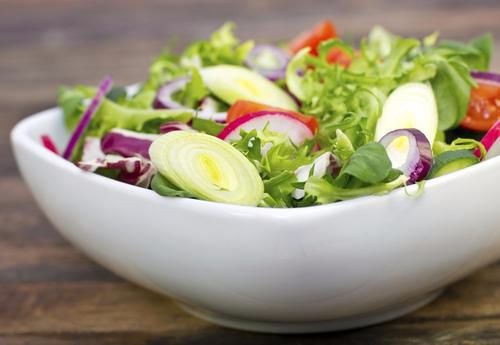
3. Onions
“Stay away from onions. The link between them and acid reflux is clear,” says Jeremy Tian, Ph.D., M.D. Not only do they lower the pressure with which the lower esophageal sphincter (LES) closes to separate the stomach from the esophagus, but, according to the Oklahoma Foundation for Digestive Research, in patients with acid reflux, consuming onions increases the amount of time the stomach has a pH of less than four (the lower the pH, the higher the acidity) and exacerbates heartburn and belching. Unfortunately, cooking onions doesn’t have much effect on their acidity, according to Tian, so if you’re really passionate about onions, you can try eating milder shallots and green onions in small doses to see how strongly they affect your reflux.

4. Carbonated Beverages
How many carbonated beverages you drink is a huge predictor of your heartburn risk, according to Jeremy Tian, Ph.D., M.D. Why? “The gas released from carbonated beverages increases gastric pressure,” explains Tian. Basically, all of those bubbles start pushing on your stomach, stretching it, and forcing the esophageal sphincter open. And while any bubbles can prove bad for your belly, sodas may present even more problems. Many contain caffeine (which, in some people, can trigger acid reflux symptoms) and are also highly acidic, adds Tian. And diet sodas tend to be even worse, typically having a pH between 2.5 and 3.7.

5. Alcohol
Kicking back with a drink can relax more than your mood. It also relaxes the LES, allowing gastric acid to push its way up into your esophagus and cause that horrible burning sensation reflux sufferers know all too well, says Nabeel Farooqui, M.D., assistant professor of allergy and immunology at the Ohio State University Wexner Medical Center, who works with acid reflux patients to prevent their conditions from causing esophageal damage and respiratory symptoms. If you do drink, you can sidestep a full-on reflux assault by avoiding carbonated drinks such as beer and champagne, he says. And you should also beware of reflux-triggering mixers such as acidic juices and carbonated sodas.
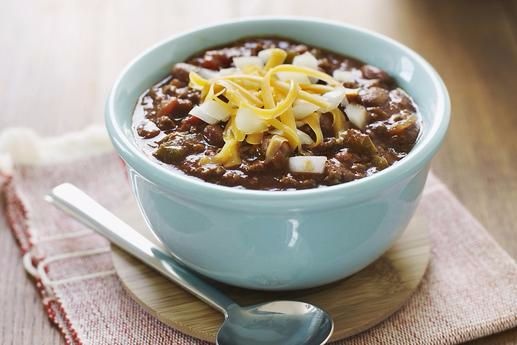
6. Spicy Foods
They’re one of the most common foods patients with acid reflux complain as triggering reflux symptoms, but research shows that spicy foods do not affect the pressure with which the esophageal sphincter snaps shut. The problem, rather, may be that spicy foods irritate the esophagus, according to Christine Frissora, M.D. What’s more, if the dish contains onions (and many spicy ones do), they could contribute to any reflux symptoms, says Jeremy Tian, Ph.D., M.D.
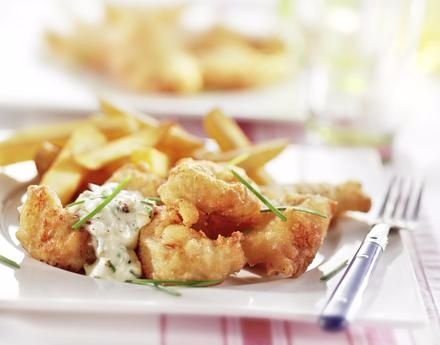
7. Fatty Foods
Fats are digested slowly, meaning they spend more time hanging out in your stomach -- giving gastric acid more opportunity to work its way up into your esophagus, according to Christine Frissora, M.D. However, the bigger problem with high-fat, low-nutrient foods could be the weight gain they spur. Research published in Alimentary Pharmacology & Therapeutics shows that obesity causes esophageal dysfunctions linked to acid reflux symptoms. If you are going to splurge on a fat-loaded meal, make it a small one and schedule it at least a few hours before bed, recommends Frissora. If you lay down to bed with a bellyful of slow-to-digest food, you raise your risk of middle-of-the-night heartburn and burps even more.

8. Coffee
While experts aren’t sure why, when consumed in large quantities, coffee has been linked time and time again to increased prevalence of acid reflux symptoms. For instance, in one German study, researchers found that caffeinated coffee greatly increased reflux patients’ symptoms -- an effect that was much smaller if the coffee was decaf. However, caffeine didn’t appear to have any influence on symptoms when patients consumed it in tea. If you do drink coffee, Nabeel Farooqui, M.D., recommends opting for darker roasts because they tend to be less acidic and better tolerated by reflux sufferers compared with light roasts. And, either way, you’re best off limiting your intake to one cup, says Jeremy Tian, Ph.D., M.D.
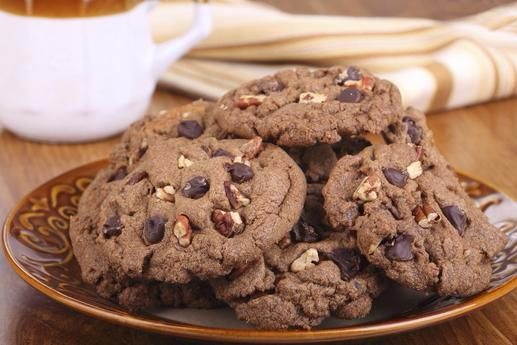
9. Chocolate
The jury is still out on whether or not chocolate’s caffeine triggers acid reflux symptoms, but research from the University of Michigan Health System does show that when people with acid reflux eat chocolate, large amounts of serotonin are released from the intestines, which in turn causes the LES to relax. What’s more, chocolate’s high fat content could also play a role in triggering acid reflux symptoms -- as can its cacao, says Christine Frissora, M.D. That means that while dark chocolate is the overall healthier option, packing a greater percentage of antioxidant-rich cacao and less health-wrecking refined sugar compared with milk chocolate, it may trigger more severe symptoms in reflux sufferers, explains Frissora.
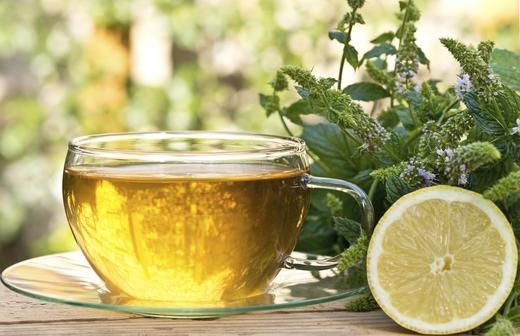
10. Peppermint
This one is tricky on the stomach. While peppermint can be used to reduce indigestion in people without acid reflux, in those who do suffer from the disease it can actually trigger heartburn. That’s because while it’s a carminative -- meaning it can both prevent gas from forming in the gastrointestinal tract as well as help the body expel it -- the soothing menthol can potentially relax the LES, says Nabeel Farooqui, M.D. So, if you’re craving a cup of relaxing peppermint tea in the evening, Christine Frissora, M.D. recommends either diluting it with water (easy on the lemon!) or subbing it out for ginger tea, which is typically soothing to the digestive tract.

What Do YOU Think?
While these foods are all commonly reported triggers, it’s important to remember that they affect each acid reflux sufferer differently. Do you suffer from acid reflux? Which of these foods causes you pain, and which ones don’t? What other foods tend to aggravate you symptoms? Leave a comment below and let us know.



